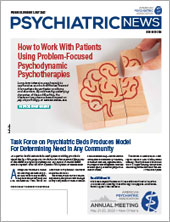One of the messages most ingrained in the brains of physicians in training is that a physician’s mistake can have devastating consequences to a patient, up to and including death. The intended purpose is to alert budding physicians of the enormity of the responsibility of caring for patients and to ensure that adequate rigor is applied to determining the correct diagnosis and treatment. Therefore, any criticism of a physician’s intervention evokes a visceral reaction in the physician, consciously or unconsciously associated with the fear of causing harm to patients.
In the past, these criticisms came through traditional means of communication, and physicians welcomed the opportunity to address patients’ misunderstandings or misperceptions. But in today’s landscape of social media and online communications, the rules have shifted dramatically, and, to paraphrase the words of renowned novelist Chinua Achebe, things have fallen apart! People can now write scathing remarks about any aspect of a physician’s practice with the freedom and boldness that anonymity affords them. These so-called reviews are not sent to the physician and a small group of the physician’s supervisors, as was the norm, but are posted on public sites for all to see for an unknown length of time. The physician’s reputation, honed through decades of dedication and sacrifice, now hangs at the mercy of keyboard warriors. Physicians are found guilty in the court of public opinion without an opportunity to confront their accusers and seek redress.
Physician rating sites are fraught with significant deficiencies. For starters, most online review sites have only a handful of reviews for a particular physician. Therefore, a physician who has treated thousands of patients is summarily judged by the comments of a few individuals, some of whom may not have even been their patients. For example, a physician colleague in private practice believed he was negatively rated by the domineering husband of a patient who was upset that the physician had prescribed a medication to treat his consenting wife over his objection. The review appeared a few hours after their interaction and mirrored the language the husband had used in the office. The physician felt frustrated and helpless.
A systematic review of the literature in the September 2020 Journal of Medical Internet Research showed that 53% of online reviews of physicians contained intrinsic data quality errors, and 61% uncovered contextual data quality issues. Further, research indicates that not all feedback written for a rating website is published. For example, between 2008 and 2017, a Swedish physician rating site rejected the reviews of 2,352 patients, 25% of which were positive, 18.7% neutral, and 56% negative, according to a report in the August 2020 Journal of Medical Internet Research. This raises concerns that online physician reviews are being manipulated for nefarious purposes.
Regardless of the harm they cause to the targeted physicians, online reviews are here to stay, and there is no escaping them. In a 2012 national survey of a representative sample of U.S. households, 59% of respondents said rating sites were somewhat important or very important in choosing a physician, according to a report in the February 19, 2014, JAMA. Of those who sought online physician ratings in the past year, 35% chose a physician based on good ratings, and 37% avoided one due to bad ratings.
So what is a physician caught in the crosshairs of this unfortunate situation to do? At his wit’s end, one psychiatrist hired an attorney to threaten legal action if the patient did not remove a negative post about the psychiatrist. Another psychiatrist subjected the patient to hostile cross-examination at the patient’s next visit. A different psychiatrist precipitously discharged the patient reviewer from her practice without adequate closure or safe handoff. As understandable as these human reactions and the drive to respond to perceived attacks may be, these actions crossed ethical lines and are potentially harmful to patients. Physicians must treat patients with compassion and respect for human dignity and rights, maintain confidentiality (in this context, breaking confidentiality to an attorney), and regard responsibility to the patient as paramount (see Sections 1, 4, and 8, respectively, in the AMA’s Principles of Medical Ethics, which APA follows).
In 2019, the APA Ethics Committee wrote a resource document regarding negative online reviews. Psychiatrists are urged to avoid responding to them altogether, but for psychiatrists who are determined to respond, the document lays out a careful and thoughtful approach to do so in a manner that respects the patient and reflects an attitude open to constructive feedback and change. Likewise, for psychiatrists determined to respond publicly on the rating site, the document recommends making a general statement such as “The legal and ethical obligations of physicians prevent me from responding publicly to any individual’s review. I take seriously the concerns of my patients and encourage anyone who has had a negative experience with my practice to contact me directly at any time.”
As painful as a negative online review may be to a psychiatrist, an equally important response is to reflect seriously on a patient’s feedback to determine if aspects of the psychiatrist’s practice should be changed and, if so, to commit to doing so. ■

